Last week, Wilbur and I went over to Gate City to hear the Oatman Family Gospel Singers. And oh, what a show they put on! I have never seen or heard anything like it. As Gospel magazine says, “Pound for pound you will never hear or see a better group than the Ferris and Minnie Oatman Family Singers.” Anyhow, we waited in line to get a signed album, and while Minnie was signing mine, I happened to mention that while she was in the area, she needed to come to the Whistle Stop Cafe and have some of Sipsey’s famous fried green tomatoes. I could tell she seemed to appreciate good food. And happily for us she did!
Reverend Scroggins was very happy with all the money we took in at the church rummage sale on Saturday. At last count it was over eighty-two dollars. The sale took place in my neighbor Ninny Threadgoode’s front yard, and consisted of collectibles, homemade quilts, and pies and cakes all donated by the neighborhood ladies. My other half Wilbur showed up to help and, as usual, fell asleep sitting up in his chair. Opal Butts went over and stuck a “Make an Offer” sign in front of him, and sad to say, we only got one offer from a widow lady from Gate City for five dollars and Opal took it. I had to pay it to get him back! Oh well, it’s all for a good cause.
Also, overheard at the cafe the other day: “There are two surefire ways to avoid paying alimony. Don’t get married. But if you do, stay married!”
…Dot Weems…
THE GIFT
AS BUD AND Billy continued talking, Billy said, “Sir, if you don’t mind my asking, did you ever feel sorry for yourself? Losing your arm so young like that?”
Bud smiled. “Oh, you bet. For a while I had a bad case of the ‘Poor me’s’ and ‘My life is ruined forever, I’ll never amount to anything, what’s the point of trying.’ I was well on my way to becoming a royal jerk. But you know, all that changed. And I can tell you exactly when it happened.”
“Did you get an artificial arm or something?”
“Nope, better than that. It started on one Christmas and ended on another, and I remember it just like it happened yesterday.” Then he smiled. “That second Christmas, everybody in town knew what I was getting. Everybody but me. But I knew something was up. My friend Naughty Bird was taunting me. She’d say, ‘I know what Santa Claus is bringing you,’ and then she’d run away. Or else somebody would say, ‘I know something that you don’t.’ I tried my best to find out, but nobody would talk, and I was so darned frustrated, because I knew what I wanted. I wanted it so bad I was scared to tell anybody. Scared I wouldn’t get it, scared to let Momma and Aunt Idgie know that I’d be disappointed if I didn’t get it.
“Back then I still kind of believed in Santa Claus, so I wrote him a letter addressed to the North Pole, and handed it to Mrs. Weems, the postmistress, in person to make sure it got mailed in time.” Bud smiled. “Of course, I didn’t know it then, but I found out later that Mrs. Weems read all those letters to ‘Santa Claus’ herself, and told the parents what their kids wanted. So Momma and Aunt Idgie knew all along what I was hoping for.”
WHISTLE STOP, ALABAMA
1937
THE FIRST YEAR Idgie and Ruth had opened the cafe, as a thank-you to their customers, they’d decided to stay open Christmas Day and invite everybody in for a free meal.
That first Christmas morning, when Ruth opened the door, she was stunned to see how many people were waiting outside. Almost everybody in town was standing there, including a few strangers who had heard that the cafe would be open. But all were welcome. Men, women, children, folks riding the rails, even dogs and cats.
Every year after that, they started cooking around December twenty-third. They had to. Christmas at the cafe was now a town tradition. And during the Depression, for the poorer kids, the gifts that Ruth and Idgie wrapped and put under the Christmas tree were the only ones they would receive that year. Then there was the food. Sipsey’s son, Big George, would make sure there was plenty of barbecue on hand. And a few days before Christmas, Idgie’s hunting pals always brought in a load of wild turkeys to fix and stuff with cranberries. They had fried chicken and pork chops, plenty of mashed potatoes and gravy, chicken and dumplings, homemade rolls, cornbread, and biscuits, and at least ten different kinds of dessert. A lot of the railroad men that lived in town were old bachelors, and had nowhere to go on Christmas. The cafe was home to them, and they brought Idgie bottles of good seventy-five-year-old Kentucky bourbon that she served in paper cups to try to fool Reverend Scroggins. Of course, she never did fool him, particularly when a few of the guys got so loaded they fell off their stools.
Just like always, in 1937 everybody in town was enjoying themselves. Everybody except Buddy. A young boy suddenly losing his arm was bad enough. But Buddy had been very good at sports, and had dreamed of becoming a major league baseball pitcher, or a football star. He didn’t say much about it, but he hardly ever went outside to play anymore. He just stayed in his room, and for the first time in his life, he’d started throwing little temper fits. That Christmas, after he’d thrown a fit in front of his Aunt Ninny and Uncle Cleo, Idgie knew that Buddy was more upset than even he realized.
Idgie had a friend named Eva Bates who ran the juke joint with her daddy down on the Warrior River. And Idgie had a hunch about something. Eva had about ten dogs that she kept out in her yard. And there was one little dog in particular that Idgie thought might be good for Buddy to see. The problem was that Idgie had made a promise to Ruth, so she was taking a big chance that might be worth taking, but only if he promised her to keep his mouth shut about it. After they got in the car she said, “Now, Buddy, if I take you somewhere today you can’t tell anybody because—”
“I know, because you could get in a lot of trouble if I do, right?”
“That’s right. So, you promise?”
“I promise.”
“Scout’s honor?”
“Yes ma’am.”
“Okay then.” Idgie started the car, and they headed down toward the river.
They drove up to the wooden house and parked, and Idgie left Buddy in the car while she went up on the porch and talked with a lady with bright orange hair. As he sat there for a while, Buddy suddenly noticed the little three-legged dog jumping and running around in the yard with the others. And just as Idgie had hoped, it made an impression. The little dog didn’t seem to know she had a leg missing. She just seemed happy to be alive. There was nothing handicapped about her. He got out and called her over to the fence, leaned down, and petted her, and she almost licked his hand off.
When Idgie got back in the car, Buddy said, “Aunt Idgie, I sure do like that little brown dog over there. It’s got a leg missing, but it’s still cute. Don’t you think?”
Idgie looked over at it and said, “I do, and as a matter of fact, I think it’s the cutest one in the bunch.” She waved to Eva and they drove off.
—
EVA BATES WAS a somewhat notorious character in the area, as was her father, Big Jack Bates, who owned the Wagon Wheel Fishing Lodge and River Club. The tourist cabins behind the club were known far and wide for “unseemly activity,” so to speak. Big Jack Bates, a part-time bootlegger, also ran illegal gambling in the back room of the River Club, where high-stakes poker games could sometimes become dangerous. It was rumored that a couple of men had been murdered back there: one for cheating, the other for reneging on a bet. It was not a safe place, by any means, but Idgie had been going there with her brother since she was eight, and had been playing poker in the back room since she was twelve. And she was good at it.
Читать дальше
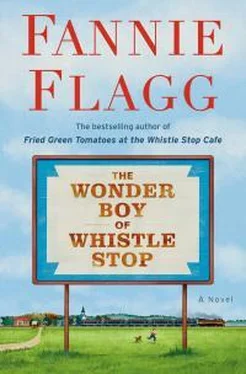

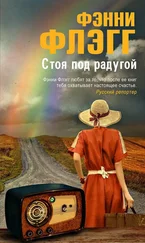
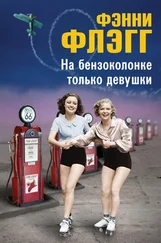

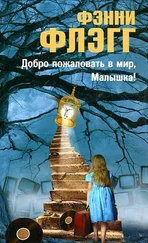
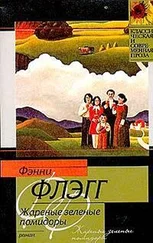
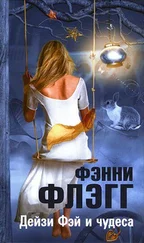
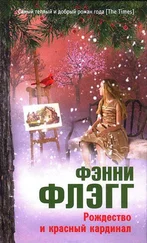

![Фэнни Флэгг - Дейзи Фэй и чудеса [litres]](/books/396999/fenni-flegg-dejzi-fej-i-chudesa-litres-thumb.webp)
![Фэнни Флэгг - Рай где-то рядом [litres]](/books/429696/fenni-flegg-raj-gde-to-ryadom-litres-thumb.webp)
